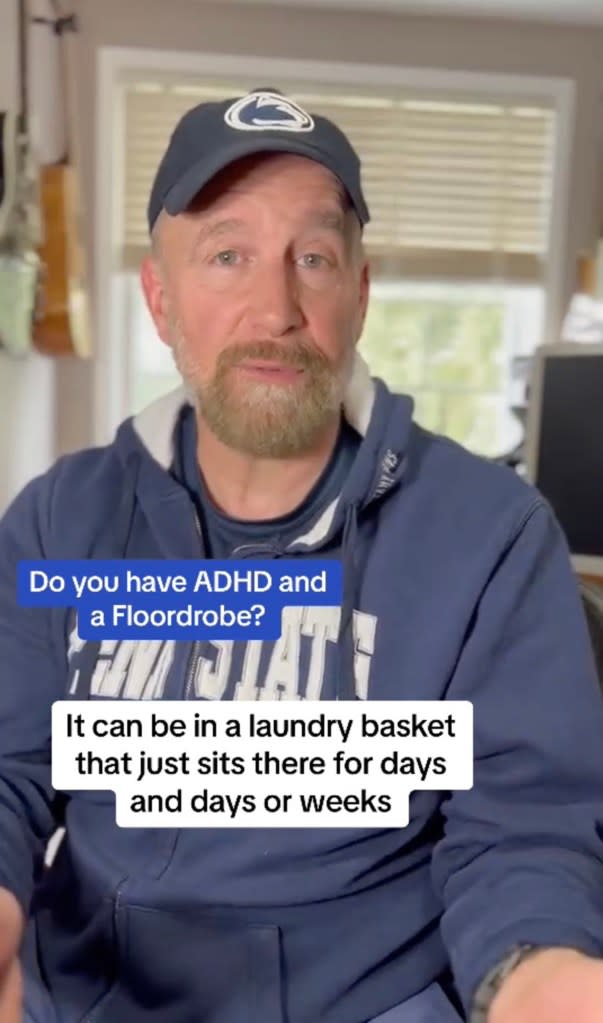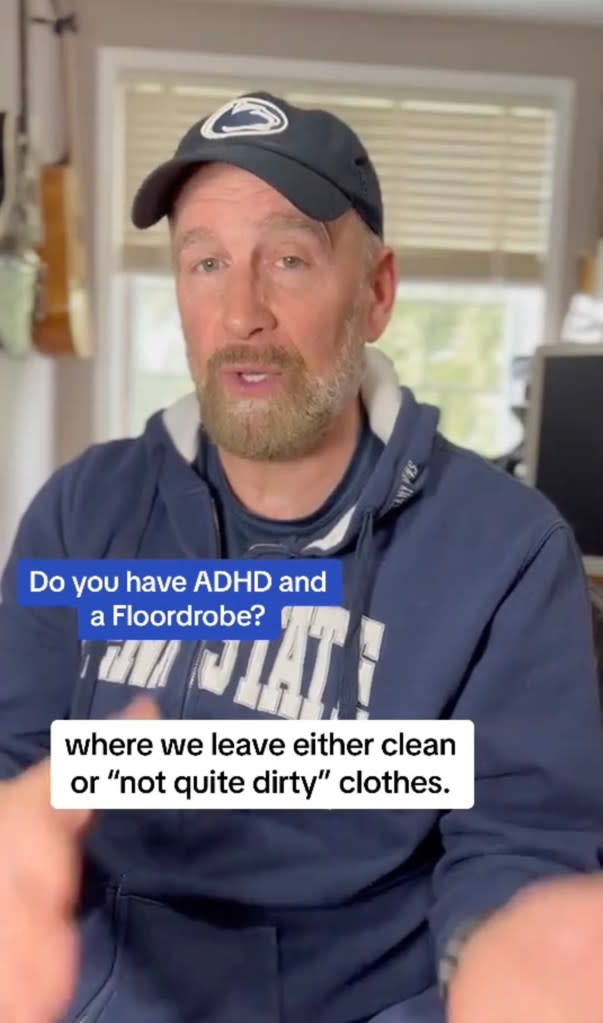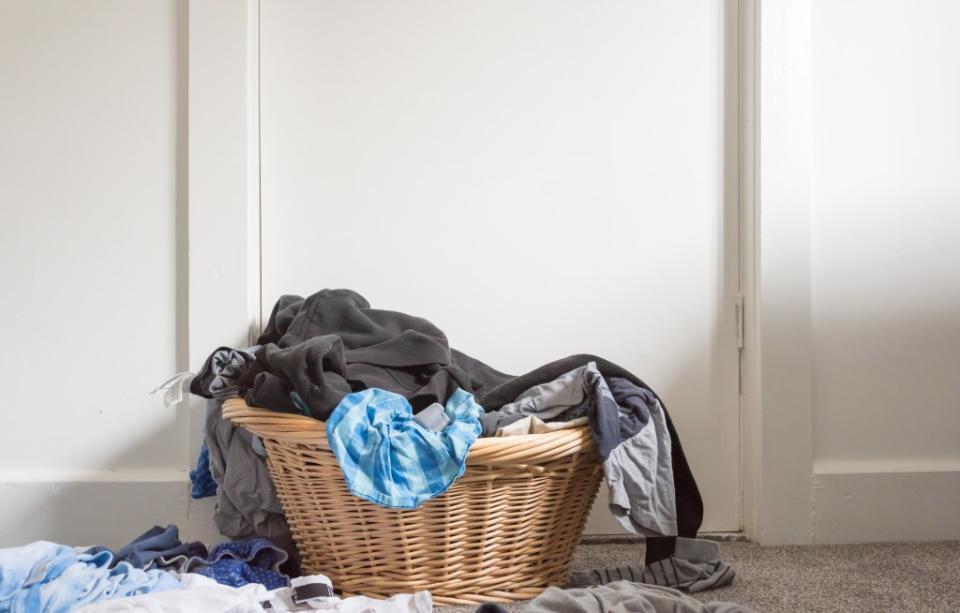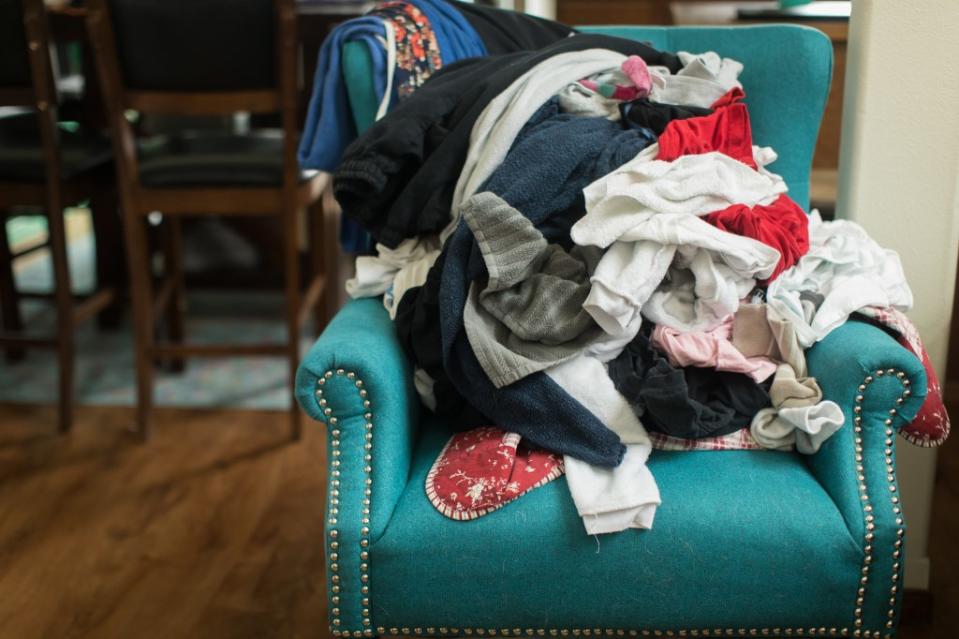Do you have a ‘floordrobe’? If you struggle to put laundry away, it could be a sign of this

So your clothes are kept in the basket or splayed on your bed for a little bit too long on laundry days — aren’t we all a little guilty of that?
According to Jeff Rice, an ADHD coach and author, the cluttered “floordrobe” could be a symptom of attention-deficit/hyperactivity disorder (ADHD). However, one expert told The Post not to jump to conclusions.
“A ‘floordrobe’ is a place, typically on the floor, where we leave either clean or ‘not quite dirty’ clothes,” Rice explained in a TikTok clip posted this week, which has amassed 5.2 million views.


The garments may sit in a basket or in a pile on a chair or the floor for days to weeks, whether they’re freshly laundered or have the potential to be worn a second time.
The latter, Rice continued, acts as a “visual cue” to remind us that we want to wear that item again, while avoiding the chore of putting away clean clothing because it isn’t “interesting,” “urgent” or “challenging” to the ADHD brain.
“So we put it off and put it off until maybe it does become urgent because all four laundry baskets are in the closet, full of your clothes and you have to do laundry,” he said.
Rice, who admitted he struggles with his own “floordrobe,” says he often solves the clothing clutter conundrum by placing limits around how long “not quite dirty” items can lay around — if it’s not being worn the next day, toss it in the hamper or hang it up, he said.


In order to convince himself to tidy up freshly laundered garments, he timed how long it would take for him to put away all his clothes: seven minutes per basket. The “hard data,” he said, made it “easier” for him to complete the chore.
Dr. Alma Spaniardi, an assistant attending psychiatrist at NewYork-Presbyterian/Weill Cornell Medical Center, told The Post that having an ongoing clothes pile could indeed be a sign, but not necessarily.
“People with ADHD can certainly have a ‘floordrobe’ since having difficulty following through with multistep tasks, failing to finish chores or avoiding tasks that require effort fall under the inattentive symptoms of ADHD,” Spaniardi said.
Those with ADHD, she said, may also lose belongings frequently, make careless mistakes and have difficulty being organized or focused. They may seem like they aren’t listening when spoken to, like “they have their ‘head in the clouds,'” she continued, but they focus more easily on activities that are interesting to them.

However, Spaniardi warned that laundry clutter isn’t necessarily “diagnostic of ADHD.”
“There can be many other causes for this phenomenon, including avoidance of the task due to anxiety or just being very busy for a period of time causing you to put off doing chores,” she said, urging people to seek out a professional and to avoid a self-diagnosis based off one habit or a social media video alone.
“While the information might be valid, mental health diagnosis is more complicated than just the identification of one symptom alone.”


